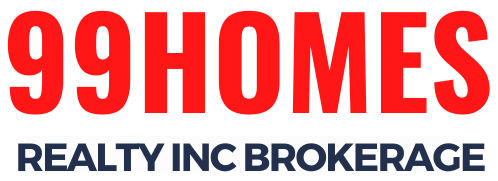22 Feb Are YOU Getting the Best Rate? Must read to negotiate the best deal next time.
When it comes time to shop around for a mortgage, we know it’s about more than just finding the best mortgage rate. Every mortgage is a little different, depending on what’s written into the terms and conditions of your agreement, and there really is no one size fits all.
At first glance, it may be hard to digest everything that’s included in the fine print of your mortgage contract. However, this is something you’re agreeing to for any number of years, so it’s extremely important to do your due diligence and find out exactly what you’re signing up for.
If this is your first mortgage or refinancing the existing mortgage, there are likely also some terms you may not even know about yet. Before you sign on the dotted line, here are few questions you should clearly know the answers while shopping around for mortgage with banks or mortage brokers.
1. What is your maximum affordability? When shopping for a home it’s important to determine the maximum mortgage and home price you can qualify for. To determine your maximum affordability, lenders take several factors into account, majoring 1. Your down payment and 2. Your debt service ratios – which are determined based on your income , the monthly costs associated with owning the home and your monthly debt commitments.
2. What are the interest rate offering with mortization and term period? Try to find the conbination which works best for you whether it’s lowest 15 Year Mortgage Rates or 30 Year Fixed Rate. I always advice my clients to shop around before finalizing with one. RateHub.ca and ratesupermarket.ca are good online resources to give you an idea of current interest rates in the market.
3. Should you go for fixed-rate, variable mortgage or hybrid mortage(half fixed / half variable) rate? Try to find which work better for you and if your lender offer? choosing a fixed rate mortgage means you won’t have to worry about future interest rate fluctuations during your mortgage term where as with a variable rate mortgage, the mortgage rate will change with the prime lending rate as set by your lender. A variable rate will be quoted as Prime +/- a specified amount, such a Prime – 0.50%. Fixed rates are usually low with increased which are usually less than fixed rates.
4. What is the Mortgage Penalty? You may or may not know by now that if you break your mortgage contract before your term is up, you’ll be subject to a mortgage penalty. If you have a variable rate mortgage, it’s just three months’ interest standard. If you have a fixed rate mortgage, however, it’s the greater of three months’ interest or the interest rate differential (IRD) – and the IRD can become expensive fast. If there’s any chance you’ll break your mortgage contract before your term is up for renewal, you should try to find a lender who uses a discounted mortgage penalty.
5. Is Cash-Back Mortgage a good option for you? With a Cash-Back mortgage, the client receives a rebate on their mortgage at the time of closing of the mortgage. This rebate varies anywhere from 1% to 5% of the mortgage amount depending on the Bank and term chosen. The most common of the Cash-Back mortgages is the 5% Cash- Back featured by a few of the Canadian Chartered Banks. The money from a Cash-Back mortgage is especially handy for the fist time buyer who needs extra funds to purchase home improvement items such as blinds, carpet, appliances, or even furniture. Thus, first time buyers are the number one consumer of Cash-Back mortgages in Canada. A few banks allow the Cash-Back to be used towards the down payment. It is important to remember that this rebate is never directly paid back to the Bank. Instead the Bank increases the interest rate on the entire mortgage to recoup their costs.
6. Is there a pre-payment penalty clause? This is exactly what it sounds like. It’s the penality if you want to pay down your mortgage sooner. Some lender offer the feature where you can pay specific amount or double up your payment without penalty.
7. Is the interest rate compound monthly or semi annually? Most fixed rate mortgage products compound the interest on a semi-annual basis, however, some variable rate mortgage products do it monthly. The more frequently your interest is compounded, the more interest you’ll end up paying.
8. Is your lender offer online access? This may seem obvious, but many of the smaller lenders and wholesale lenders don’t offer online access. If having this type of access is important to you and how your account. you should confirm it with lender.
If you have any other questions regarding your mortage or home buying process, want to invest in pre-construction condos or would like some information about the toronto, brampton or mississauga real estate market, you can trust me as your real estate expert. FEEL FREE TO CONTACT ME AT 416 414 8888

Sorry, the comment form is closed at this time.